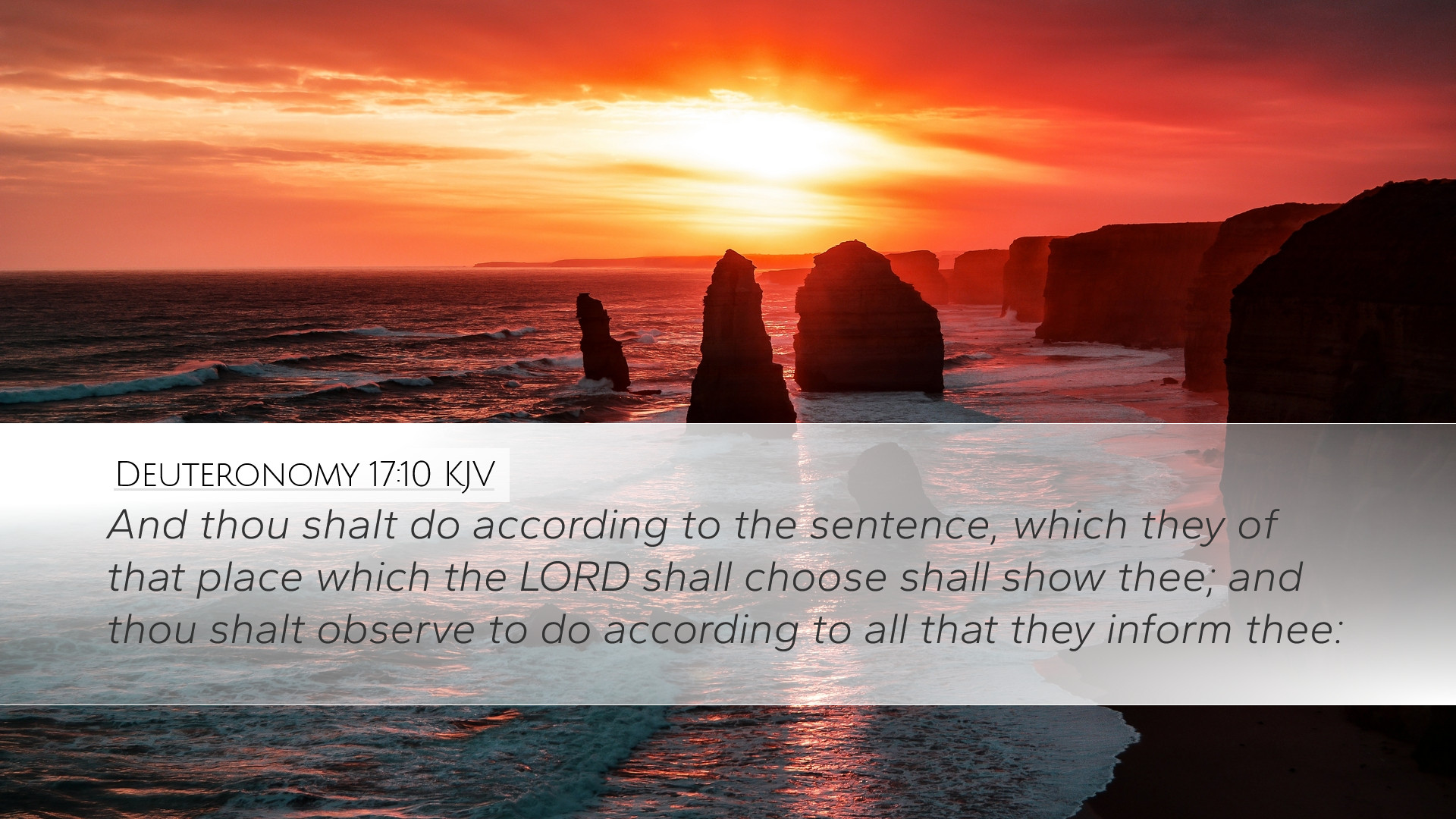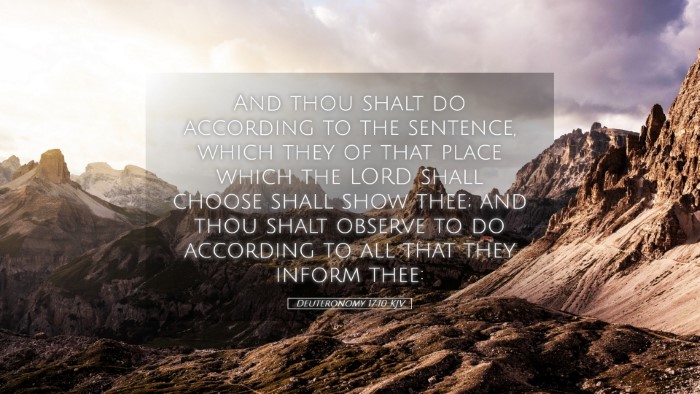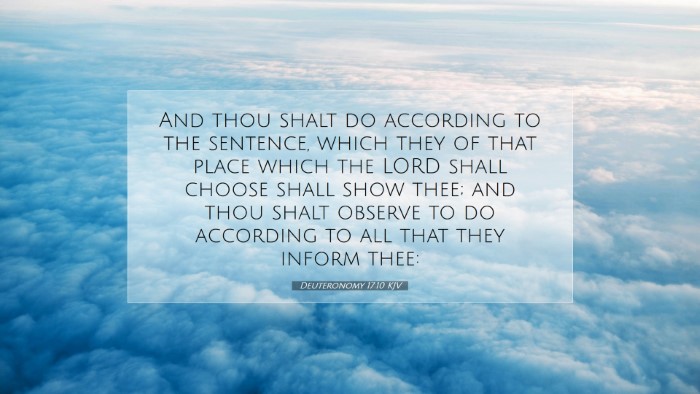Bible Commentary on Deuteronomy 17:10
Verse Summary: Deuteronomy 17:10 states, "And thou shalt do according to the sentence, which they of that place which the LORD shall choose shall show thee; and thou shalt observe to do according to all that they inform thee." This verse is a directive concerning the importance of adherence to divine judgment as administered by appointed leaders.
Contextual Analysis
The Book of Deuteronomy serves as a recapitulation of God’s law given to the Israelites before they enter the Promised Land. This specific verse is part of a larger section that emphasizes the need for judicial integrity and the necessity of adhering to God’s ordinances as disseminated through chosen leaders.
Insights from Historical Commentators
Matthew Henry's Commentary
Matthew Henry emphasizes the significance of obedience to the judicial systems established by God through the leadership of priests and judges. He notes that the Israelites were to rely on the authority that God ordained in order to maintain order and righteousness in their society. Henry points out:
- Role of the Judges: The judges, as representatives of God’s authority, played a crucial role in interpreting the law. Their decisions were not merely human judgments but were expected to reflect God's will.
- Divine Authority: The phrase "the place which the LORD shall choose" signifies that God's chosen leaders are to be recognized and respected. This underscores the importance of divine guidance in leadership.
- Importance of Obedience: The command to observe and do as instructed reflects the necessity for believers to submit to the governance established by God, which fosters community cohesion and spiritual health.
Albert Barnes' Notes
Albert Barnes provides additional perspectives on the implications of obedience to divine instruction. He reflects on how this directive establishes a framework for judicial conduct and societal order:
- Judicial Authority: Barnes highlights that the authority of the judges is rooted in the divine mandate. This ensures that all decisions align with God’s statutes, promoting justice and fairness.
- Unity Among the People: The command promotes unity, as the people are urged to collectively adhere to the judicial decisions made in accordance with God’s law, preventing division and discord.
- Implications for Contemporary Believers: Barnes draws parallels to modern-day scenarios, urging current believers to seek guidance from godly authorities within the church and to align their lives with biblical principles as taught through those leaders.
Adam Clarke's Commentary
Adam Clarke takes a deeper dive into the theological ramifications of this directive and its application:
- Divine Wisdom: Clarke reflects on the nature of divine wisdom and its manifestation through appointed leaders. He argues that listening to these leaders is synonymous with listening to God Himself.
- Community Responsibility: The responsibility placed upon the people to follow the dictates of their rulers reflects a communal relationship with God, where obedience to established authority is a form of communal worship and reverence for divine order.
- Moral Obligation: Clarke emphasizes that following these directives is not merely a legal obligation but a moral one, integrating faith and practice into the believer's daily life.
Theological Reflections
The verse's emphasis on following the decisions of God-appointed leaders invites serious reflection on how authority is perceived and upheld within the church. It raises questions about how believers today engage with church leadership and the importance of understanding authority as ordained by God.
God’s Authority and Human Responsibility
This verse echoes the relationship between divine authority and human responsibility. In adhering to the judgments rendered by those appointed by God, believers acknowledge that God is ultimately in control, even amid human fallibility. This balance underscores a faith that trusts in God’s sovereignty and seeks to embody His will as articulated through human representatives.
Implications for Faith Communities
For pastors, students, and theologians, this verse invites a deeper exploration of community dynamics:
- Establishing Authority: It calls for understanding how authority is established within faith communities and the biblical basis for respecting and honoring it.
- Encouraging Obedience: Leaders must teach the importance of obedience to God’s word as relayed through scriptural interpretation and community governance.
- Promoting Justice: The role of leaders is to promote justice and righteousness as embodied in God’s law, ensuring a church culture that mirrors God’s character.
Conclusion
Deuteronomy 17:10 serves as a vital reminder of the importance of divine wisdom in leadership and the necessity of obedience to God’s commandments as conveyed through appointed leaders. As we reflect on this scripture, it is essential for believers to recognize that in following rightful authority, they are ultimately aligning themselves with God’s perfect will for their lives and communities.


